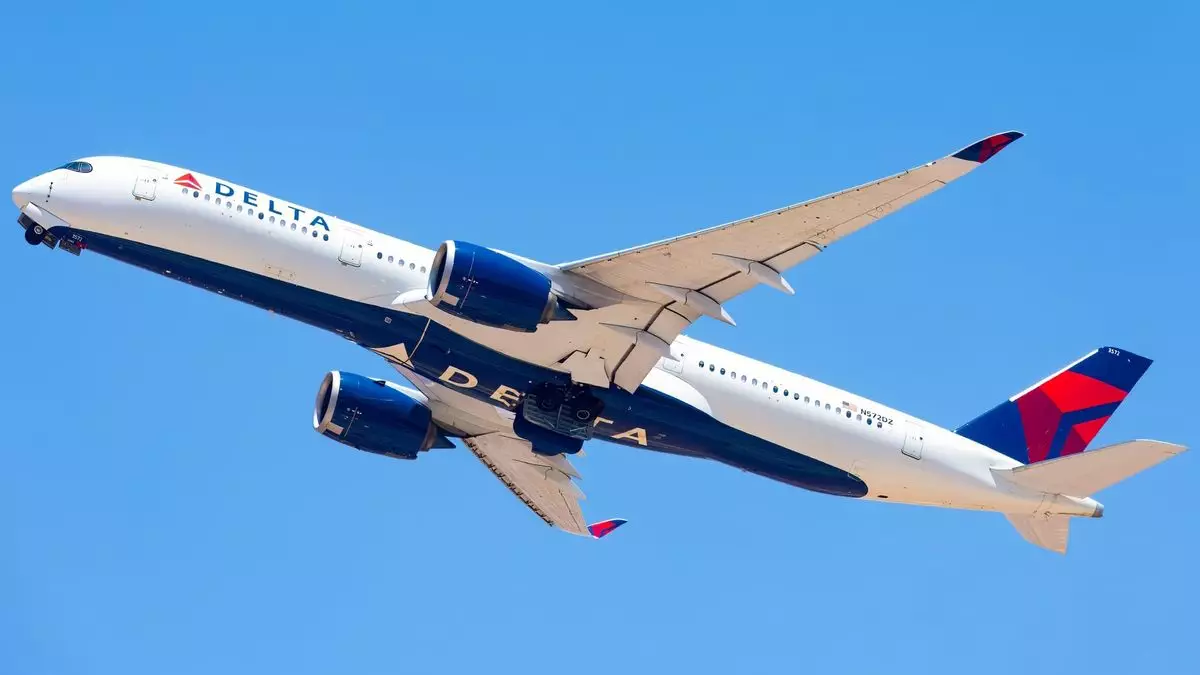The aviation industry, perceived as a beacon of economic strength, is now grappling with the unsettling winds of political and economic uncertainty. Delta Air Lines, considered one of the most robust carriers in the U.S., recently demonstrated a troubling shift in fortune by retracting its optimism for 2025 guidance. This decision is not merely an isolated incident; it reflects a broader dilemma facing the entire travel sector, worsened by escalating trade tensions. CEO Ed Bastian’s remarks resonate as a sober reminder: “With broad economic uncertainty around global trade, growth has largely stalled.” It highlights how external factors—particularly trade wars—can disrupt established forecasts and business strategies.
Financial Fluctuations
In the first quarter, Delta reported a profit of $240 million, or 37 cents per share, a substantial increase from $37 million a year prior. On the surface, these numbers suggest resilience in Delta’s operations. However, experts and analysts have raised eyebrows, given that even amidst these gains, the stock price experienced a notable decline. The long-term trend is concerning—Delta’s shares are down by 41% this year. This statistic starkly contrasts with the increasing operational revenues, which climbed to $14.04 billion, surpassing expectations. It raises critical questions: how sustainable are these profits in the face of declining consumer confidence, especially regarding travel-related expenditures?
Consumer Behavior Adjustments
What’s most alarming is the significant shift in consumer behavior. After months of increasing demand, there has been a noticeable pullback from travelers as concerns over economic stability loom ever larger. Delta itself has acknowledged that “recent declines in consumer and corporate confidence” have adversely impacted domestic demand. Such hesitance can be attributed to the ambiguity surrounding trade policies, which not only affect corporate budgets but also consumer spending habits—a gut check for airlines dependent on leisure and business travel.
With the closing of the first quarter, Delta had originally projected a revenue increase between 3% and 4% compared to the previous year. However, the figures were dramatically recalibrated, indicating a range of merely 2% gains at best. This downward adjustment showcases how swiftly and drastically market conditions can alter expectations, calling into question the entire airline industry’s ability to project future profitability accurately.
A Pattern of Caution
As organizations like Delta Air Lines navigate increasingly unpredictable economic waters, caution is likely to become the prevailing strategy. Bastian emphasized that the airline is adeptly managing costs and actively reducing its planned capacity growth for the latter half of the year. While this may protect margins in the short run, it raises critical concerns about long-term sustainability in a market driven by demand. The previous outlook of earnings projections exceeding $7.35 per share by 2025 seems unfeasible in an environment where consumer confidence is compromised and economic indicators falter.
Moreover, the most recent earnings forecast for the second quarter—projecting between $1.70 and $2.30 per share—is considerably below earlier indications. Even a mixed performance, with anticipated revenues fluctuating between a 2% decline to a 2% increase, highlights the uncertainty that now envelops Delta.
Leadership Adaptability
Leadership plays a pivotal role during times of economic strife. Glen Hauenstein, Delta’s president, noted, “2025 is playing out differently than we expected at the start of the year,” indicating an adaptive mindset crucial for weathering these challenges. The contrasting messages—between assurance delivered at industry conferences and the alarming reality reflected in retracted forecasts—illustrate a significant dichotomy that may confuse investors.
The fluctuating perceptions suggest that Delta’s leadership needs to recalibrate not only its financial strategies but also its communication with stakeholders. Establishing a transparent and honest dialogue regarding current conditions can enhance trust and understanding, mitigating backlash from shareholders and consumers alike.
The airline industry, with its high stakes and significant economic implications, must be prepared to adjust swiftly to new realities. Delta, as a leader in the sector, holds the potential to pave the way for resilience, navigating a complex landscape dictated by external unpredictability.


Leave a Reply